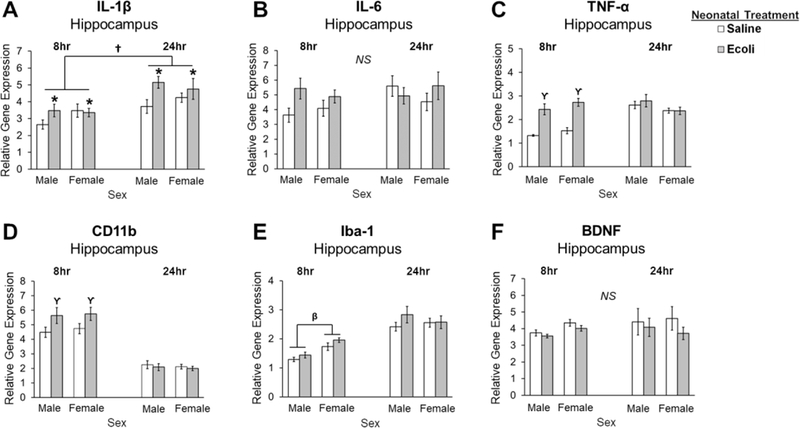Figure 1. Impact of E.coli (1×106 CFU/0.1mL/kg) in the hippocampus of male and female neonates 8- and 24-hours following infection.

(A) Relative gene expression of the proinflammatory cytokine IL-1β is significantly increased in males and females following neonatal infection at both time points, and is significantly increased at 24 hours post-infection compared to 8 hours. (B) Relative gene expression of the proinflammatory cytokine IL-6 is not significantly different following neonatal infection at either time point in males or females. (C) Relative gene expression of the proinflammatory cytokine TNF-α is increased in males and females following neonatal infection at 8 hours, but not 24 hours post-infection. (D) Relative gene expression of a marker of microglial activation, CD11b, is significantly increased in males and females 8 hours post-infection but not at 24 hours. (E) Relative gene expression of Iba-1 is lower in males compared to females at 8 hours, but not at 24 hours post-infection. (F) Relative gene expression of the trophic factor, BDNF, is not significantly different following neonatal infection at either time point in males or females. Error bars represent ±SEM. *p < 0.05 represents the main effect of Neonatal Treatment. †p < 0.05 represents the main effect of Time. ϒp < 0.05 represents a significant interaction of Neonatal Treatment and Time. βp < 0.05 represents a significant interaction of Sex and Time.
